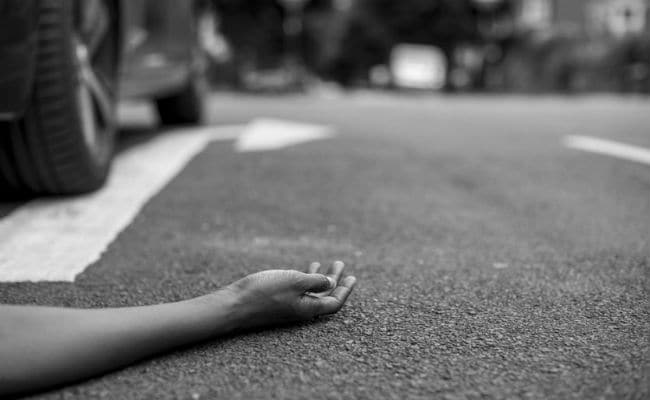
The unrest has resulted in 362,000 Haitians being internally displaced.
Port-au-Prince:
Armed assailants stormed the presidential palace and police headquarters on Saturday as residents of Haiti’s capital scrambled for safety in the wake of recent gang violence, with the United Nations warning that “the city is under siege.”
Criminal gangs that already control much of Port-au-Prince and roads leading to the rest of the country have wreaked havoc in recent days as they try to oust Prime Minister Ariel Henry as leader of the Western Hemisphere’s poorest nation.
Dozens of residents sought safety in public buildings on Saturday, with some managing to break into one facility, AFP reporters reported.
The International Organization for Migration (IOM) said on Saturday that the unrest had internally displaced 362,000 Haitians, more than half of them children, with some forced to move multiple times.
“Haitians are unable to live a decent life. They live in fear, every day, every hour,” Philippe Branchat, IOM country director in Haiti, said in a statement , their trauma will become more severe.”
“People who live in the capital are locked in and they have nowhere to go,” he said. “The capital is surrounded by armed groups and is fraught with danger. This is a city under siege.”
Lionel Lazar of Haiti’s police union said police repelled gang attacks on Friday night, including on the presidential palace, and killed several “bandits.” There were no police officers among the victims.
An AFP reporter said the violence left burning vehicles still smoking outside the interior ministry and on nearby streets.
Gunfire rang out across Port-au-Prince on Friday night as witnesses described clashes “between police and bandits” as criminal gangs apparently tried to take over a police station in the city centre.
Lazar asked on Saturday for “means and equipment” to protect police buildings and other critical facilities.
state of emergency
The well-armed gangs have attacked critical infrastructure, including two prisons, in recent days, leading to the escape of most of the 3,800 inmates.
The gangs join some ordinary Haitians in seeking the resignation of Prime Minister Henry, who was due to step down in February but agreed to a power-sharing deal with the opposition until new elections are held.
The United States has asked Henry to implement urgent political reforms to prevent further escalation. But he was in Kenya when the violence broke out and is now reportedly stuck in the U.S. territory of Puerto Rico.
After months of delays, the U.N. Security Council finally approved a Kenyan-led multinational policing mission in October, but the deployment has been put on hold by a Kenyan court.
Port-au-Prince and western Haiti have entered a month-long state of emergency, with a nighttime curfew set to last until Monday, but overstretched police are unlikely to enforce it.
‘Escape’
In Port-au-Prince, Philiane Setout told AFP how she had worked for more than 20 years at the Ministry of Social Affairs and Labour.
The job, she said, meant she “was able to build her own house. But now here I am, homeless. I’m running away and don’t know where to go and it’s abusive.”
“We haven’t been able to sleep since last night,” she added. “We need to escape.”
Haiti’s airports remain closed, while major ports – key points for food imports – have reported robberies since suspending services on Thursday despite efforts to establish security borders.
“If we lose access to these containers (filled with food), Haiti will soon go hungry,” NGO Mercy Corps warned in a statement.
CARICOM, an association of Caribbean countries, has summoned envoys from the United States, France, Canada and the United Nations to meet in Jamaica on Monday to discuss the violence.
Guyana President Irfaan Ali said the meeting would discuss “key issues of stabilizing security and providing emergency humanitarian assistance.”
As health systems collapse, violence is threatening the country’s most vulnerable, including pregnant women and survivors of sexual violence.
The International Organization for Migration’s Blanchard lamented gang attacks on hospitals and a “severe” lack of mental health services.
“Some hospitals were occupied by gangs and had to evacuate staff and patients, including newborns,” he said.
“Health professionals across the capital are sounding the alarm as their ability to provide the most basic care has been severely reduced.”
(Except for the headline, this story has not been edited by NDTV staff and is published from a syndicated feed.)






